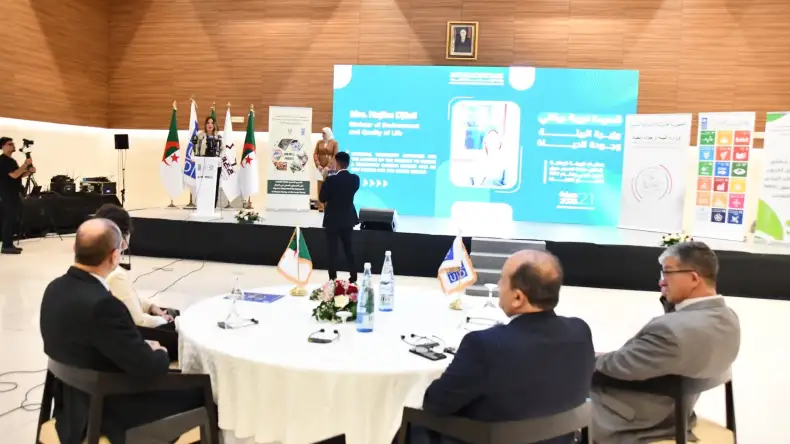

Your go-to source for in-depth coverage of political developments, economic trends, social affairs, and vibrant cultural stories from across the continent.

The announcement was made during a technical workshop in the capital, Algiers, as part of the “Integrated Waste Management and Local Energy Production” project (AIM-WELL). This initiative represents a collaborative effort between the Algerian government and the United Nations Development Programme (UNDP).
According to the Algerian Press Service (APS), the dual initiatives aim to promote the green economy by repositioning waste as an economic asset and energy source, in line with Algeria’s international climate commitments.
During the workshop, Algeria’s Minister of Environment and Quality of Life, Najiba Djilali, emphasized the transformative nature of the project: “This project marks a radical shift in our developmental approach.
It moves Algeria toward an inclusive and sustainable model that upholds circular economy principles and restores environmental integrity.”
She explained that the initiative, which spans from 2023 to 2028, offers a pioneering framework for scientific planning, digital governance, and community partnerships in waste management.
The provinces of Constantine and Sétif have been selected as pilot zones for applying strategic waste management blueprints and testing smart digital monitoring systems to ensure transparency and real-time oversight.
Djilali further highlighted the project’s broader mission: “This is not just about managing waste—it is a national initiative to redefine the relationship between citizens and their environment, and between waste and development.”
Industry Minister Saifi Ghrib also underscored the economic opportunities tied to the initiative.
“This project represents a strategic opportunity to stimulate investment in clean technologies and build new green industries that generate added value and create jobs,” he said.
Ghrib added that the MRV system is vital to ensuring emission reductions are credible and transparent, allowing Algerian companies to access international carbon markets and climate finance mechanisms.
I am an avid African news observer, and an active member of Daily Mail Africa.
I’m Passionate about staying informed on diverse topics across the continent,
I actively contribute to publishing on political, economic and cultural developments in Africa.